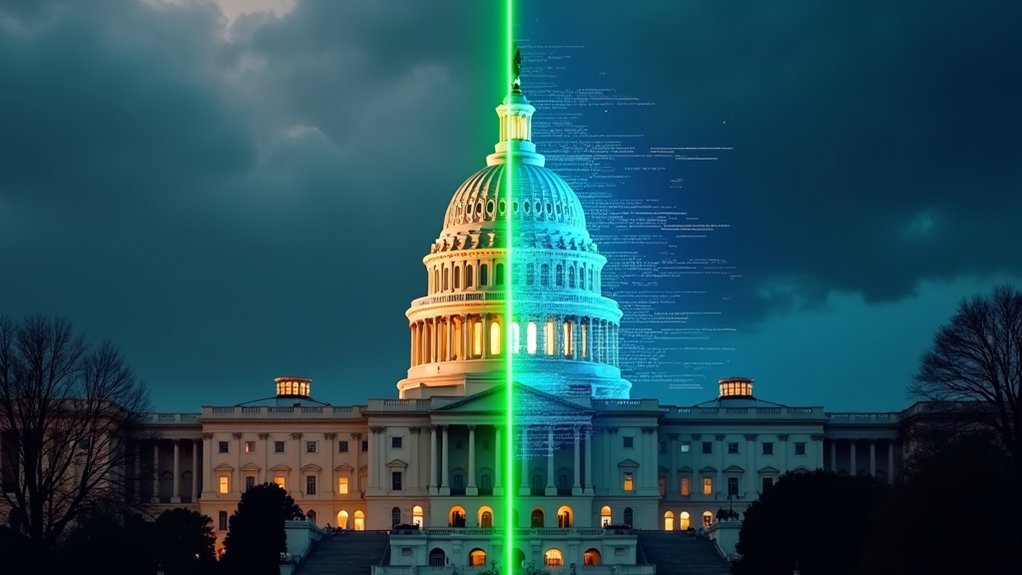How decentralized is Bitcoin, really? The cryptocurrency was born from the ideals of distributed power and freedom from central authorities. But look at the numbers. The top five mining pools now control over 70% of Bitcoin’s hash power. Not exactly the picture of decentralization painted in the whitepaper.
Bitcoin’s decentralization promise collides with harsh reality when five mining pools dictate most of its hash power.
Bitcoin runs on a public, permissionless blockchain where supposedly anyone can participate. There are over 15,000 nodes worldwide verifying transactions and maintaining the ledger. Impressive, sure. But who’s actually mining new coins? Not your average Joe with a laptop anymore. Mining requires specialized hardware and massive amounts of energy. The barriers to entry are sky-high.
Meanwhile, Wall Street has crashed the party. Financial giants like BlackRock and Fidelity now hold substantial Bitcoin reserves through custodial services. ETFs and mutual funds let mainstream investors buy Bitcoin without actually owning it. Remember “not your keys, not your coins”? Apparently not.
Regulators aren’t far behind. Governments increasingly view Bitcoin as something to control rather than ignore. AML and KYC requirements force users to surrender privacy for participation. Some countries have outright banned mining, pushing operations into a shrinking number of crypto-friendly jurisdictions.
The technology itself continues evolving toward greater decentralization. Layer-2 solutions like the Lightning Network aim to improve scalability without compromising Bitcoin’s distributed nature. Bitcoin’s Proof of Work consensus mechanism remains its fundamental security guarantee, requiring miners to solve complex mathematical puzzles to validate transactions and add blocks. DeFi protocols are integrating Bitcoin with smart contract functionality. Taproot updates have enhanced privacy features. Recent research even suggests that Bitcoin’s early period from 2009-2011 experienced a lack of decentralization that could have made it vulnerable to attacks.
But can technical innovations outpace institutional concentration? When central banks start holding Bitcoin reserves, you’ve got to wonder whose interests will shape its future. The cryptocurrency community champions trustlessness through cryptography, yet millions of users trust centralized exchanges with their coins.
Bitcoin remains structurally decentralized in its consensus mechanism and open-source governance. No single entity can change the code without broad agreement. That’s something. But when Wall Street and Washington increasingly hold the keys, Bitcoin’s revolutionary promise of true decentralization seems increasingly like a distant dream.





